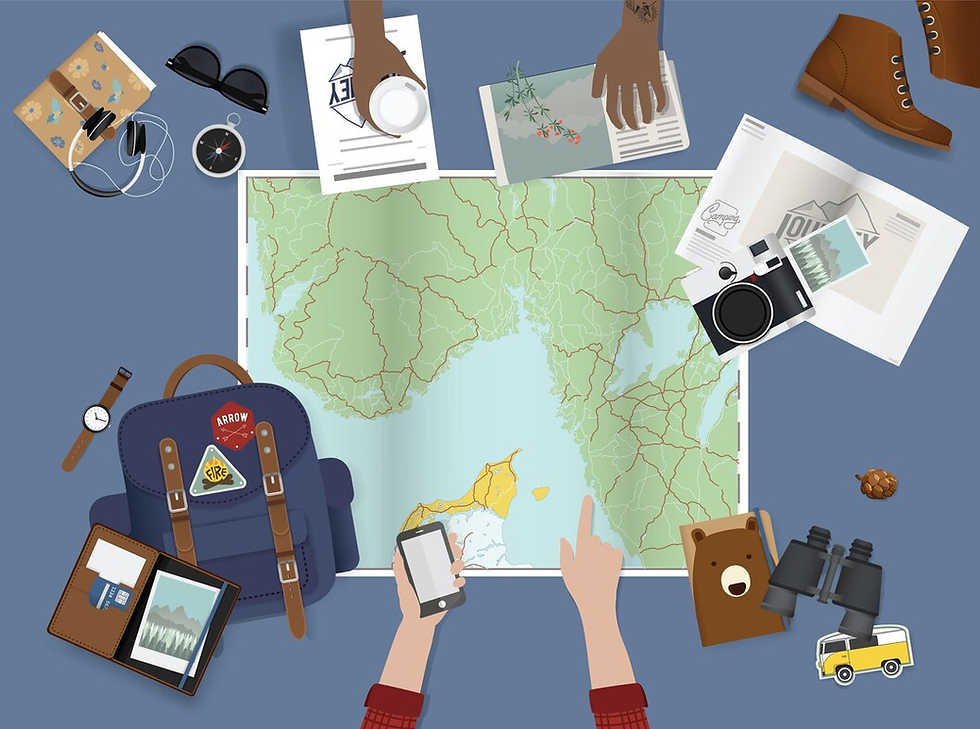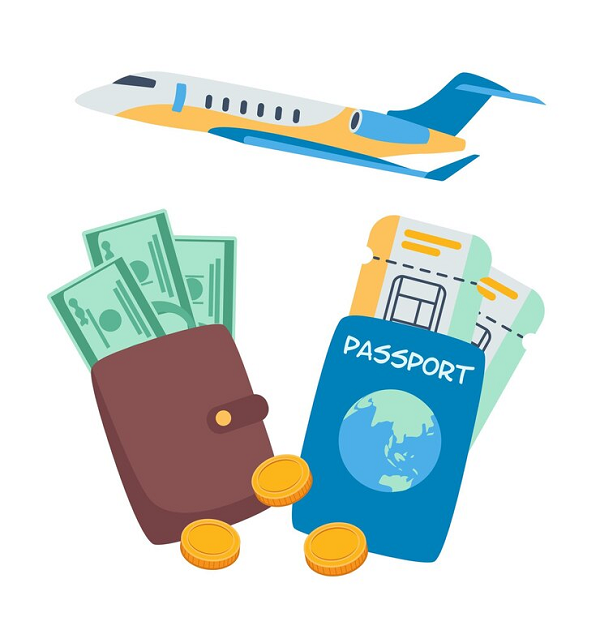The Benefits of Off-Season Travel: How to Avoid the Crowds and Save Money
- Mateo
- Aug 21, 2024
- 4 min read
Updated: Aug 23, 2024
Off-season travel offers a unique way to explore the world. It involves visiting a place outside its busy tourist season. This approach to travel has many perks. Fewer people are at popular spots, making enjoying attractions without long lines easier.
Prices for flights and hotels often drop, helping you save money on your trip. Plus, you can see how locals live without the usual tourist rush. One smart way to cut costs even more is using airline miles programs.
For example, you can sell SkyMiles to book cheaper hotels instead of sticking to partner hotels. This gives you more options and can lead to more significant savings. Off-season travel opens up a world of possibilities for budget-conscious explorers.
Off-Season Travel Benefits
Off-season travel presents numerous advantages for savvy travelers. The benefits extend beyond just financial savings, though that's undoubtedly a key factor.
Cost savings are significant during off-peak periods. Flights to popular destinations can cost half as much as during peak season. Mid-week travel often yields even lower prices, and airline miles programs add another layer of savings potential.
Activities and attractions often reduce their prices during slower periods. Many tour operators and venues offer discounts to attract visitors. In some destinations, there may be room for price negotiation on local tours and experiences, allowing travelers to experience more within their budget.
Flexibility is a hallmark of off-season travel. As accommodations and tours become more available, last-minute bookings become more feasible. This allows for more spontaneous travel decisions without extensive advance planning.
Cultural experiences tend to be richer outside of peak tourist seasons. Visitors are more likely to encounter locals going about their daily lives than other tourists, which can lead to more authentic interactions and insights into local customs and traditions.
For example, smaller European towns often host local festivals and events during shoulder seasons, providing unique cultural experiences.
Popular attractions become more enjoyable without large crowds. Iconic sites like Angkor Wat or Chichen Itza can be explored leisurely, offering better photography and contemplation opportunities without the pressure of long queues or crowded viewing areas.
Off-season travel also contributes to sustainable tourism practices. It helps distribute the economic benefits of tourism more evenly throughout the year, supporting local communities during traditionally slower periods. Additionally, it reduces the strain on local resources and infrastructure during peak seasons.
Smart Planning for Off-Season Adventures
Different regions have unique off-seasons. Europe often sees fewer visitors in late fall and winter, except for ski destinations. Parts of Asia have monsoon seasons that deter many tourists. Latin America's low seasons vary by country and climate.
Research is critical - check historical weather data and local event calendars. This helps avoid unpleasant surprises and can uncover hidden gems like local festivals.
Airline miles programs like Delta SkyMiles can amplify off-season savings. During slower travel periods, airlines often reduce the number of miles needed for reward flights, making your miles stretch further.
Look for off-peak award charts to find the best values. Some programs also allow mile redemptions for hotel stays or car rentals, offering even more flexibility.
Consider selling unused reward miles for cash to boost your travel budget. Several reputable platforms facilitate this process safely and legally. Additionally, travel apps and websites often highlight off-season deals. Set up price alerts for your chosen destinations to catch sudden drops in airfare or accommodation costs.
Off-Season Destinations Worth Exploring
Winter transforms many European destinations. Lapland offers a magical snow-covered landscape and Northern Lights viewing opportunities. Paris has become less crowded, allowing for peaceful strolls and shorter lines at major attractions.
Alpine resorts offer world-class skiing at more accessible prices compared to peak weeks. Monsoon seasons in Southeast Asia bring lush landscapes and dramatic skies. In Thailand, rain usually comes in short bursts, leaving plenty of time for sightseeing.
Vietnam's terraced rice fields are at their most beautiful during the wet season. Indonesia sees fewer tourists, making it ideal for exploring temples and beaches in relative solitude. Mexico's shoulder seasons offer pleasant weather and fewer crowds at archaeological sites like Chichen Itza.
Peru's dry season ends in April but May can be an excellent time to visit Machu Picchu before peak crowds arrive. Brazil's spring (September to November) brings mild temperatures and colorful landscapes, perfect for exploring cities or the Amazon.
How to Maximize Your SkyMiles Value
Understand SkyMiles Worth: Assess the current value of SkyMiles in the market. This fluctuates based on various factors, including demand and Delta's pricing policies.
Choose the Right Platform: Research reputable platforms offering fair SkyMiles rates. Top Dollar Payouts is one such option known for competitive pricing.
Timing Your Sale: Monitor SkyMiles value trends. Selling during periods of high demand can potentially yield better returns.
How to Sell Delta Skymiles for Cash?
Fill out the form on Top Dollar Payouts with your details and the number of miles you wish to sell.
Receive a preliminary quote via email within 15 minutes.
Engage in a personalized discussion with a representative to negotiate the best deal.
Submit account information through a secure link for verification.
After thorough verification, receive payment via PayPal (usually within a day) or bank wire transfer.
Wrapping Up Your Off-Season Travel Plans
Off-season travel opens up opportunities for budget-conscious and experience-seeking travelers. By exploring destinations during their quieter periods, visitors can enjoy significant cost savings, more authentic local experiences, and the luxury of space at popular attractions.
As you plan your next adventure, consider the off-season – it might lead to your most memorable travel experience yet, all while keeping your budget intact.
FAQs
Is off-season travel always cheaper?
Generally, yes. Flights, accommodations, and activities often cost less during off-peak times. However, some destinations may have higher prices during special events or festivals, even in the off-season.
How can I find out when the off-season is for my destination?
Check tourism websites for your chosen location. They usually list peak and off-peak seasons. Also, look at flight and hotel prices across different months to spot trends in pricing.
Are attractions closed during the off-season?
Not usually, but some may have reduced hours. Always check official websites for opening times. Popular tourist sites typically remain open year-round, but smaller attractions might close temporarily.
Is it safe to travel during a destination's rainy season?
It can be, but prepare accordingly. Pack rain gear and be flexible with your plans. Some activities might be limited, but many places offer indoor alternatives. Check for any weather-related travel advisories before booking.




